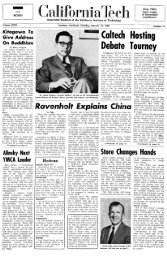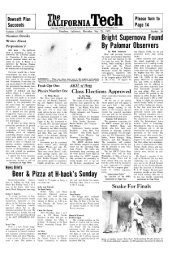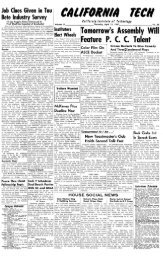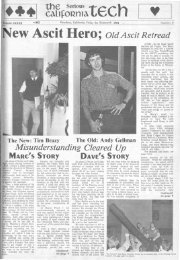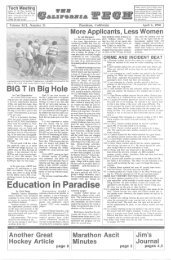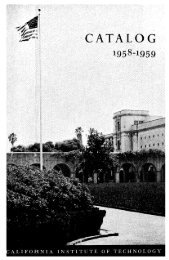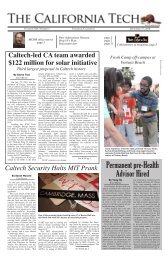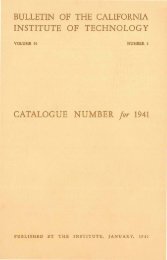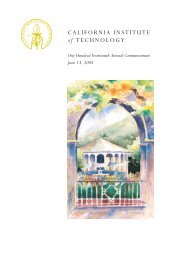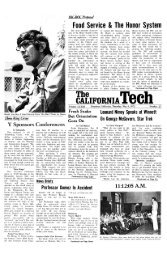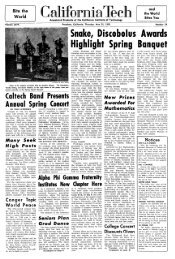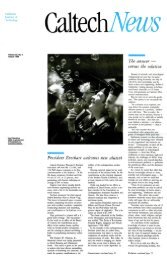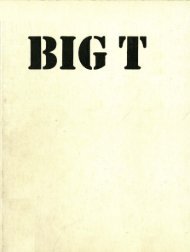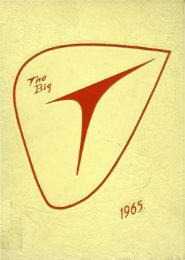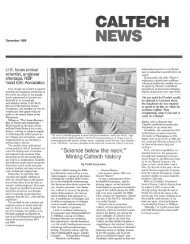Copy 2 of DOC - Caltechcampuspubs - California Institute of ...
Copy 2 of DOC - Caltechcampuspubs - California Institute of ...
Copy 2 of DOC - Caltechcampuspubs - California Institute of ...
Create successful ePaper yourself
Turn your PDF publications into a flip-book with our unique Google optimized e-Paper software.
116<br />
CALIFORNIA INSTITUTE OF TECHNOLOGY<br />
to do this raises grave doubts as to the advisability <strong>of</strong> the student<br />
continuing graduate study and he should not register for<br />
further work until after consultation with his department.<br />
s. In general a student will find it necessary to continue his<br />
graduate study and research for two years after admission to<br />
candidacy.<br />
A student in Electrical Engineering will, in general, be expected<br />
to have had six months or more <strong>of</strong> practical work in<br />
manufacturing, operating, or engineering research, in addition<br />
to the time required for college residence.<br />
VII. SPECIAL REGULATIONS RELATING TO CANDIDACY FOR<br />
THE <strong>DOC</strong>TOR'S DEGREE FOR STUDENTS MAJORING<br />
IN CHEMISTRY<br />
In agreement with the general requirements for higher degrees<br />
adopted by the Committee on Graduate Study, as set forth in<br />
Section V, the Division <strong>of</strong> Chemistry has adopted the following<br />
special supplementary regulations:<br />
1. To be recommended for candidacy for the Doctor's degree<br />
the applicant must pass satisfactorily an examination in chemistry<br />
<strong>of</strong> the character described in paragraph 2. This examination,<br />
which will be mainly written but may be partly oral,<br />
may be taken at one <strong>of</strong> four stated dates, namely, just before the<br />
opening <strong>of</strong> the school year, and at end <strong>of</strong> each term.<br />
2. The examination in chemistry will cover physical chemistry<br />
(as treated in Noyes and Sherrill's "Chemical Principles") and<br />
inorganic and organic chemistry to the extent that these are<br />
treated in the Undergraduate Chemistry Course <strong>of</strong> the <strong>Institute</strong>,<br />
also atomic structure (a general descriptive knowledge), colloid<br />
and surface chemistry, and history <strong>of</strong> chemistry. In all these<br />
subjects a detailed informational knowledge is not so much desired<br />
as power to apply general principles to concrete problems.<br />
s. Applicants must also show by examination or otherwise<br />
that they are reasonably pr<strong>of</strong>icient in mathematics and physics.



